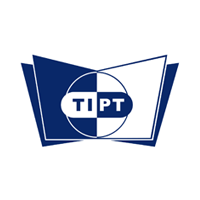 For motivated professionals-in-the-making, few careers offer the challenges and rewards found in pharmaceutical research and development. This is a career that offers the potential to save thousands of lives. However, the process of bringing a new pharmaceutical product to market is a long one that takes plenty of dedication and hard work. While many opportunities await graduates, it takes the right training to be able to access them, and to be able to meet the demands that this field brings.
For motivated professionals-in-the-making, few careers offer the challenges and rewards found in pharmaceutical research and development. This is a career that offers the potential to save thousands of lives. However, the process of bringing a new pharmaceutical product to market is a long one that takes plenty of dedication and hard work. While many opportunities await graduates, it takes the right training to be able to access them, and to be able to meet the demands that this field brings.
Practically focused programs are especially beneficial to students looking to enter this sector. Here are some of the reasons why hands-on training is so essential to a successful R&D career.
Hands-on Practice Allows Students to Better Understand Theoretical Concepts
For a successful career in research and development, graduates must possess a strong understanding of theoretical concepts and their practical application. For this reason, many training programs will incorporate both approaches into their curriculum. For example, at TIPT, 40% of class time is devoted to theory, while 60% is devoted to practical application.
There are important reasons for this approach. To begin with, practical exercises allow students to better remember theoretical concepts. According to one study by The University of Chicago, “Students who physically experience scientific concepts understand them more deeply and score better on science tests.” The study examined students learning new scientific concepts and determined that those who completed hands-on training were more likely to recall lessons during exams, as they experienced activation in sensory and motor-related parts of the brain when thinking about what they had learned.
Researchers have also determined that there are several other benefits to hands-on R&D pharmaceutical training. For example, a study by Purdue University noted that hands-on activities are especially beneficial to students who are not studying in their native language. In this way, practical exercises help students learn material faster
Laboratory Experience Develops Critical Thinking and Other Important Skills
In addition to helping students better understand course content, hands-on experience also strengthens skills important to R&D. The American Chemical Society notes that “Research has shown that students who engage in well-designed laboratory experiences develop problem-solving and critical-thinking skills, as well as gain exposure to reactions, materials, and equipment in a lab setting.”

For those working in research and development, critical thinking and problem solving are important to daily tasks, and top organizations frequently look for candidates who possess these qualities. Sanofi Pasteur, an employer of TIPT graduates, regularly states in job postings that “An ideal candidate should be comfortable stepping out of the box to explore new and innovative ideas”. As a result, hands-on training can help students develop the skill set necessary to excel in an R&D career.
Practical Pharmaceutical Training Programs Help Students Establish Their Careers
For many students completing pharmaceutical research and development training, one of the biggest benefits to a practically focused education is that it can help them strengthen their resumes. Hands-on and co-op experience helps students stand out when applying for work, and is one of the reasons that TIPT students enjoy a 95 per cent placement rate after graduation. Many students will even be employed while still completing their studies, demonstrating just how beneficial hands-on training can be in helping you break into the pharmaceutical sector.

Would you like to complete hands-on pharmaceutical training?
Discover how the Toronto Institute of Pharmaceutical Technology can help you launch your R&D career.

I am writing to tell you that I am very interested in the job position you have announced and that for me working at your department will be a pleasure and privilege. I am clinical pharmacologist with a PhD in clinical-pharmacology, pharmacogenetics from Georg-August University, Gottingen Medicine faculty and Braunschweig University pharmacy faculty in Germany. I have an excellent experience in the clinical field, industrial pharmacy, academic research and teaching. I am very good at English language since the language used to teach and study pharmacy in Libya is English. In addition, my PhD in Germany was in English. I have an enormous potential for development, and I can work under pressure, handle responsibility and build positive relationships with work colleagues at all levels. My present employer is very satisfied with my performance, and I am confident that I can achieve the same high level of performance at your department. I am capable of setting appropriate goals and achieving them, and I have a proven record of being able to conceive, develop & execute strategies. I hope that you will look favorably on my application by recognizing my enthusiasm, talents in the field of clinical pharmacology and my future potential. I would dearly like to discuss further the scope of this position together, and I am looking forward to meeting you.
E-Refrenceses
1-Prof.Dr.Alaaelden eltohamy Tohamy54@gmil.com
2-Prof.Dr.FatheyAlshref mosherif@yahoo.com
3-/prof.KhairiMustafaSalem: staff.khairi.m@alainuniversity.ac.ae
Yours sincerely Salem Abdalla